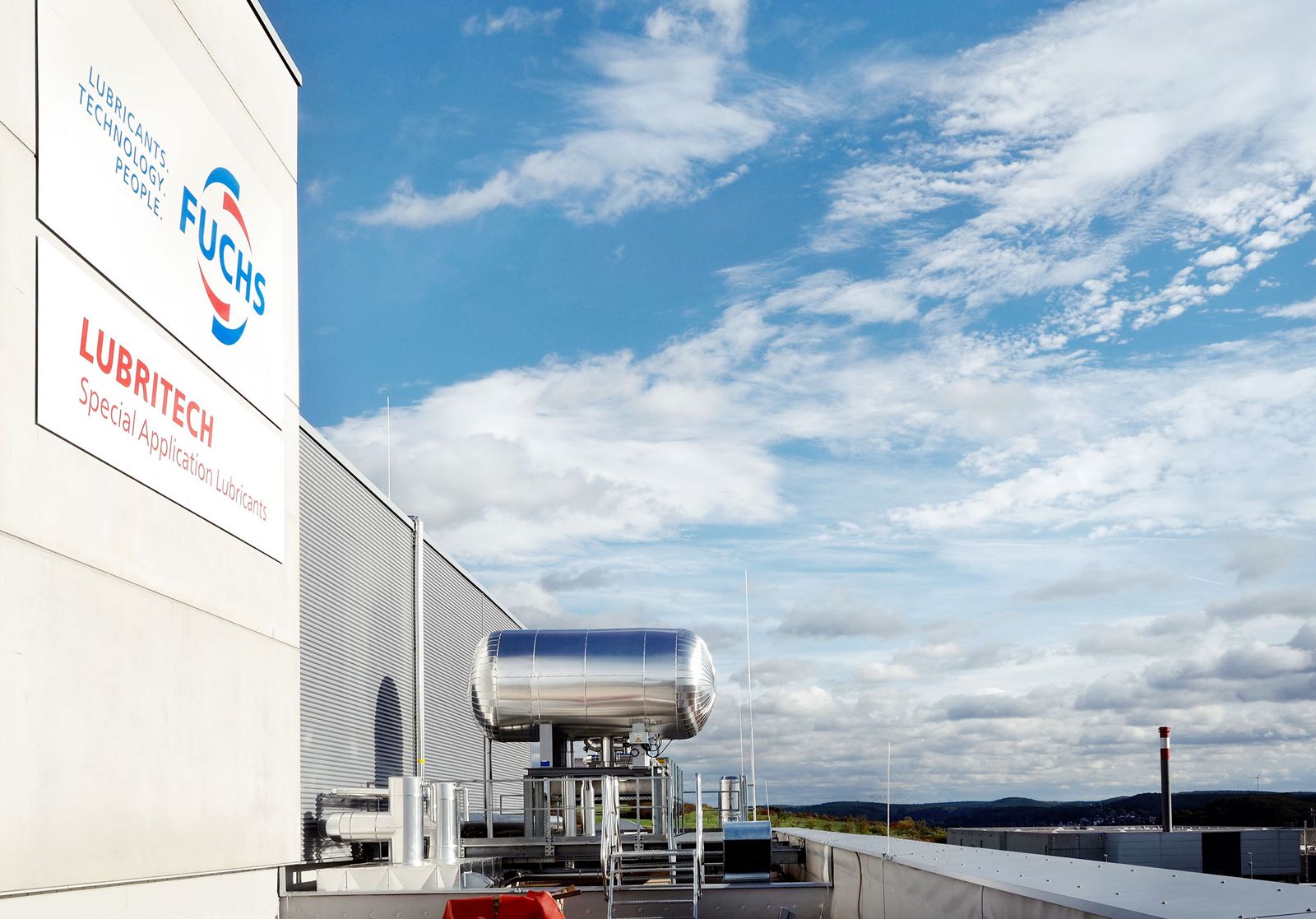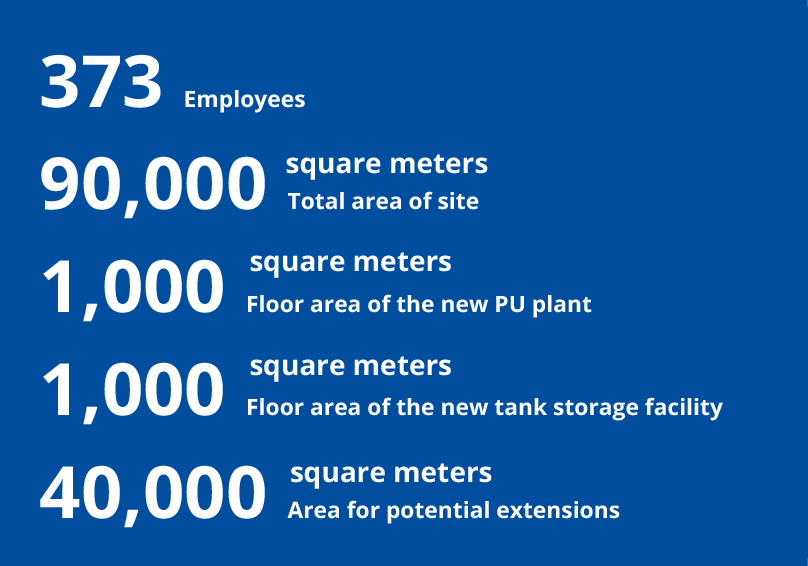GREASES, THE SPECIAL KIND OF LUBRICANT
The lubricant market is changing. Demand for highly efficient greases is increasing. With its new PU grease plant in Kaiserslautern – the largest of its kind in the FUCHS Group – the final piece of the puzzle has now been put in place for targeted supply of the entire market.
A new grease plant has been in operation in the German city of Kaiserslautern since March 24. This new facility is one of the largest grease plants within the FUCHS Group. It is also the first to produce PU greases on a large scale under the latest manufacturing conditions. Lucas Haaß is Managing Director of the new facility. He is proud of the impressive capacity offered by the new plant, for which over €25 million was invested. "The facility is fully automated. All processes are managed by a central control system." The high degree of automation guarantees the highest quality and the greatest possible consistency. "The facility also meets the highest safety standards in both operations and production, as well as for the employees." The same also applies to energy efficiency and environmental protection. "Our new PU plant is equipped with a heat recovery system. To stay within the stipulated emission limits, we also integrated a wet scrubber to clean the exhaust air. In addition, the entire floor slab of the new plant sits on a water protection film", explains Lucas Haaß. This plant will also serve as a blueprint for other locations within the Group.
SPECIAL PREMIERE: VIRTUAL OPENING CEREMONY
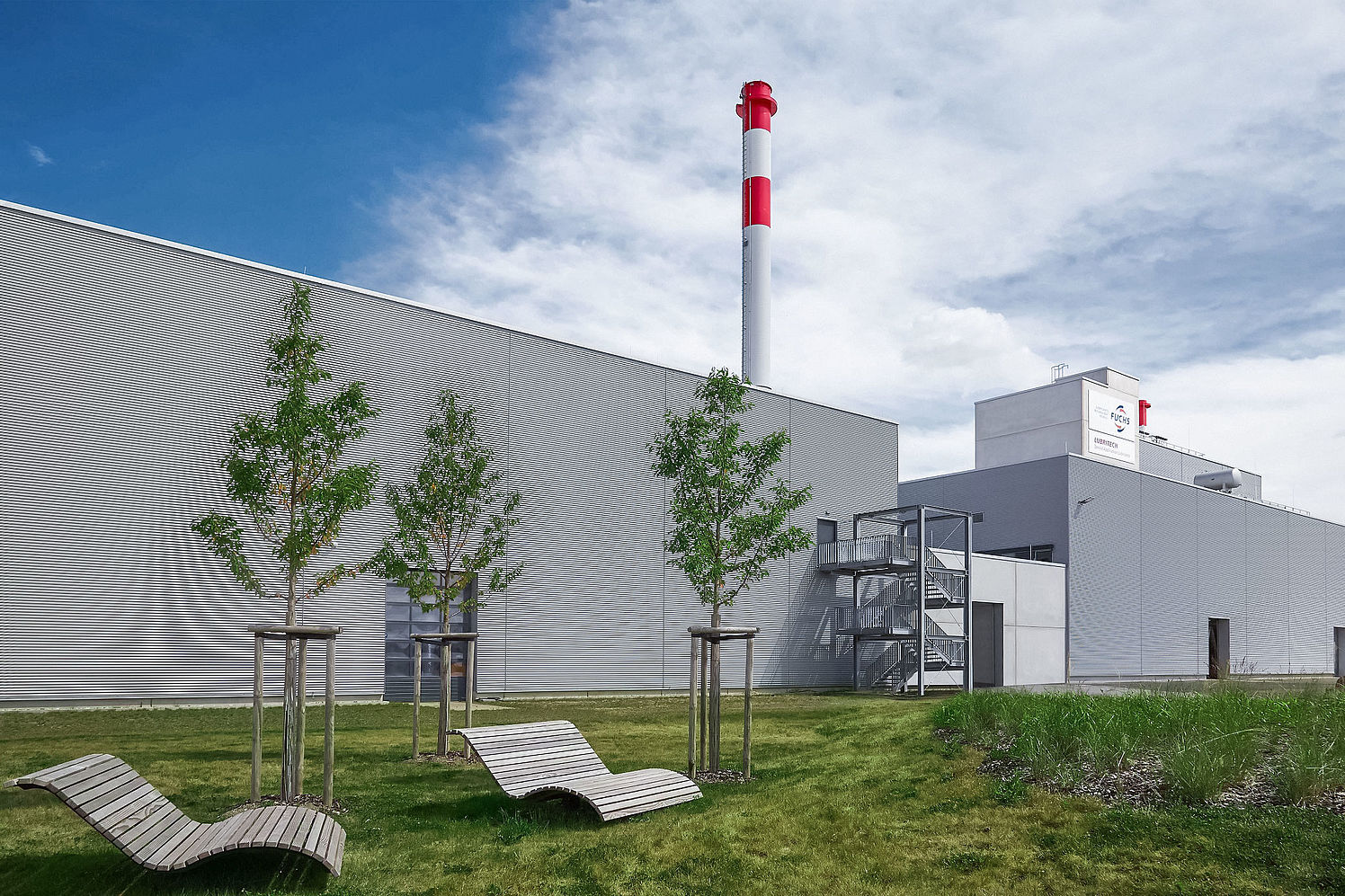
A milestone for the FUCHS Group: The new facility significantly increases production capacities for polyurethane greases (PU greases) in the FUCHS Group and serves as a blueprint for further locations in China and the US.
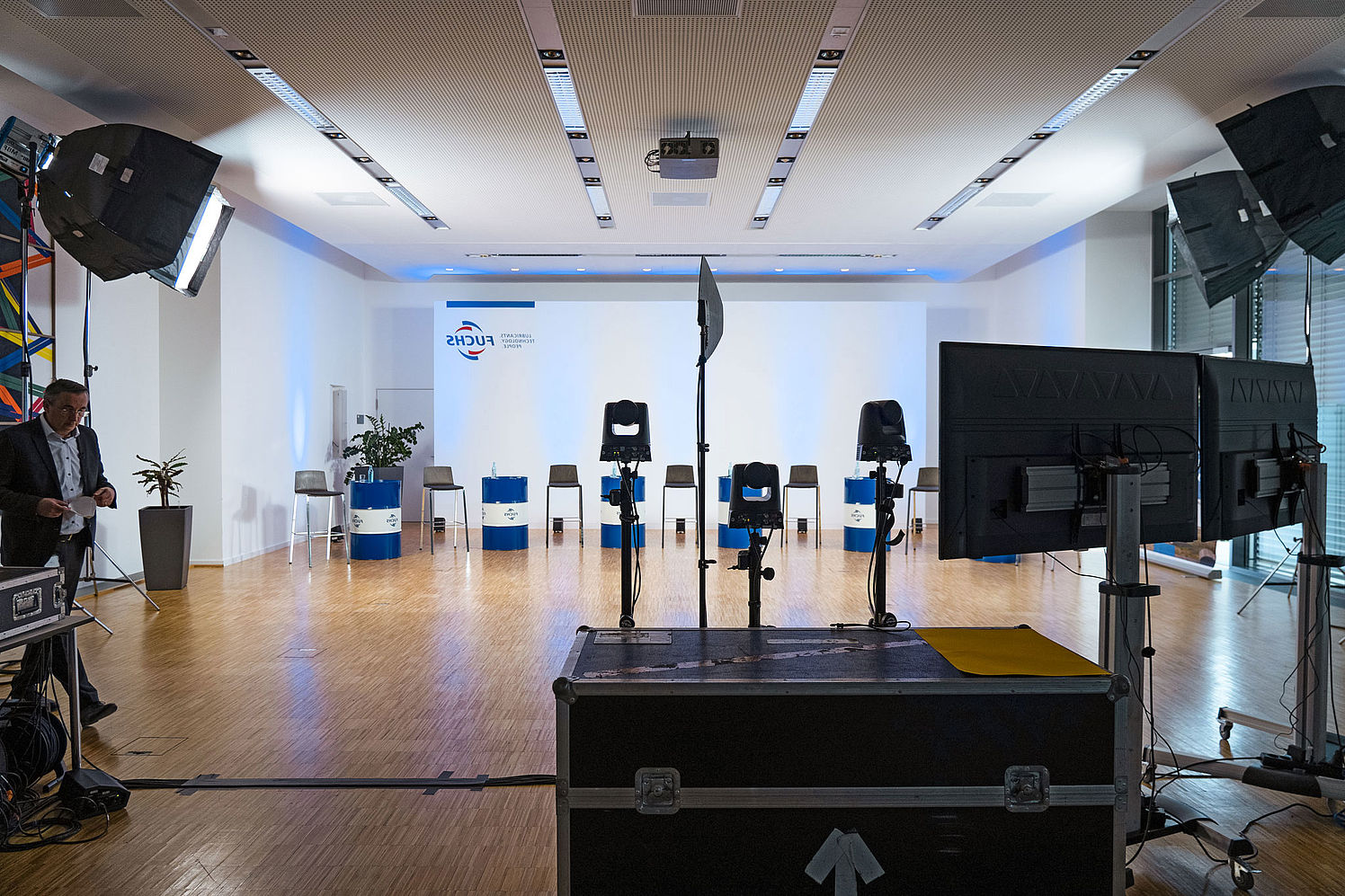
It was an event not to be missed: the virtual inauguration of the new production plant for polyurea greases in Kaiserslautern.

The months of preparation really paid off, as several hundred guests from almost 40 countries logged in to experience the opening on March 24, 2021.
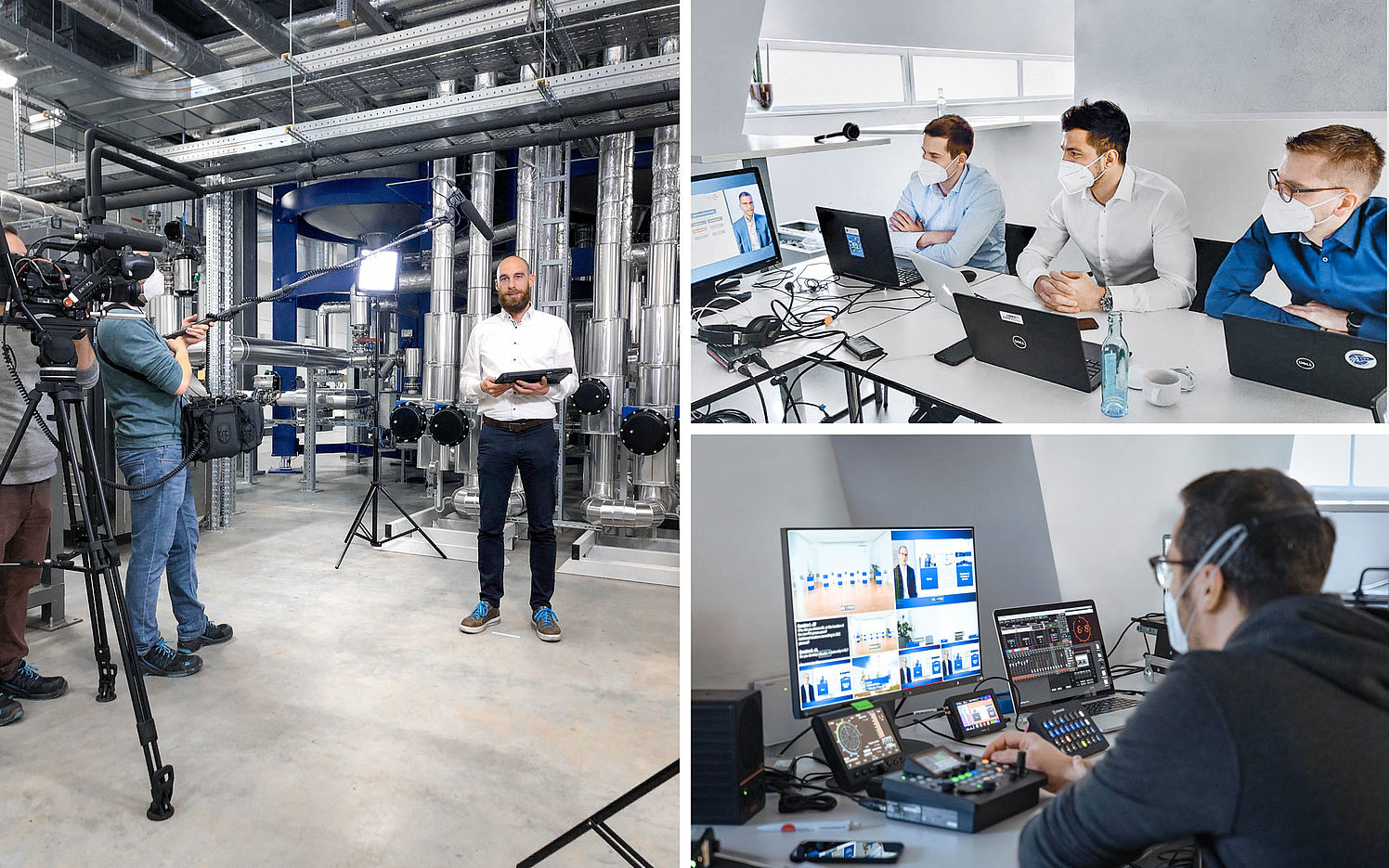
Professional technology and production: no expense was spared to ensure that the purely virtual opening ceremony was fitting for the occasion.

Dr. Matthias Ostertag, Head of Global Business Segments Automotive Components and Interior Component Manufacturer, guided the logged-in guests through the event.
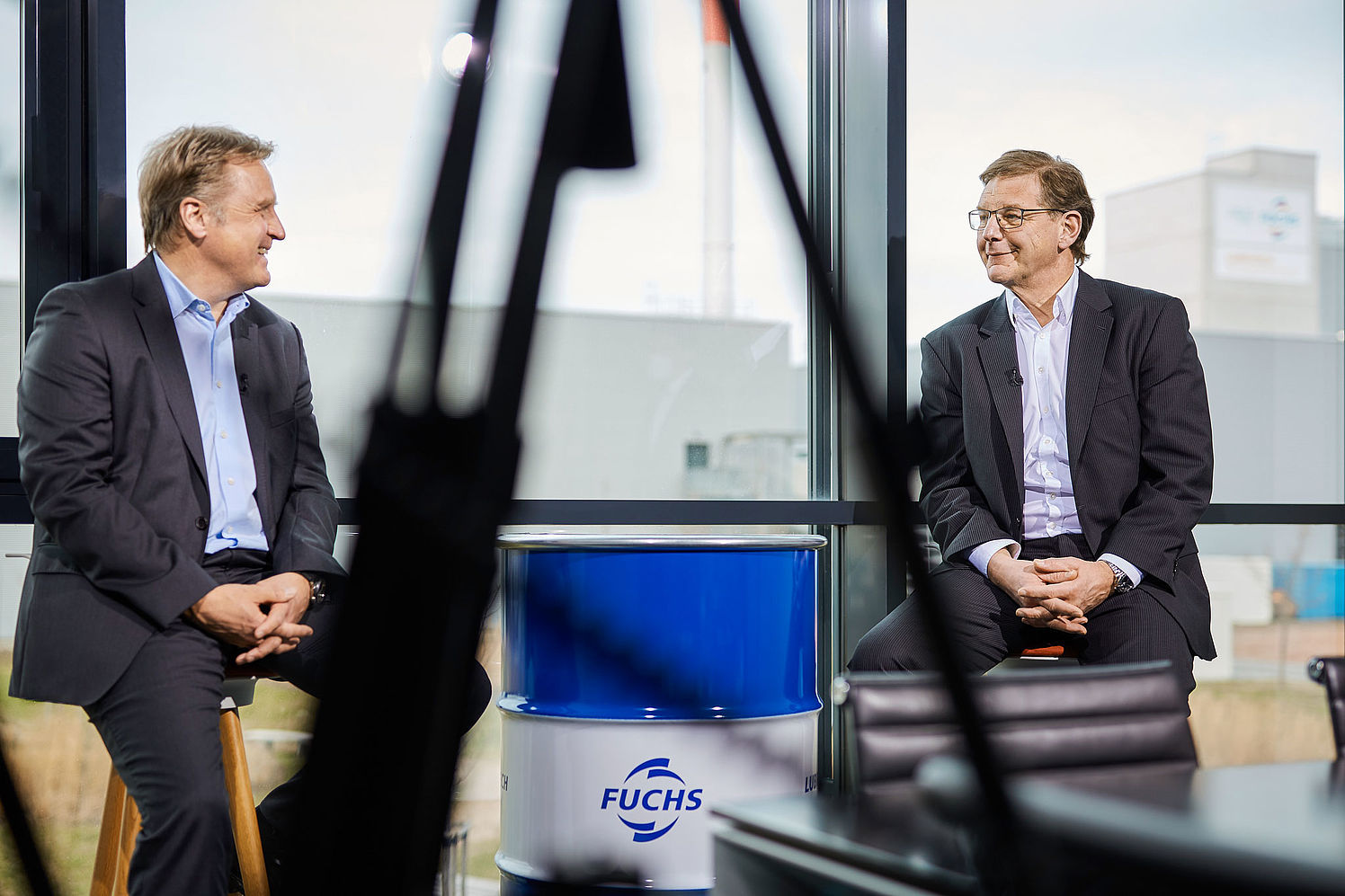
Stefan Fuchs (CEO), Dr. Lutz Lindemann (CTO)
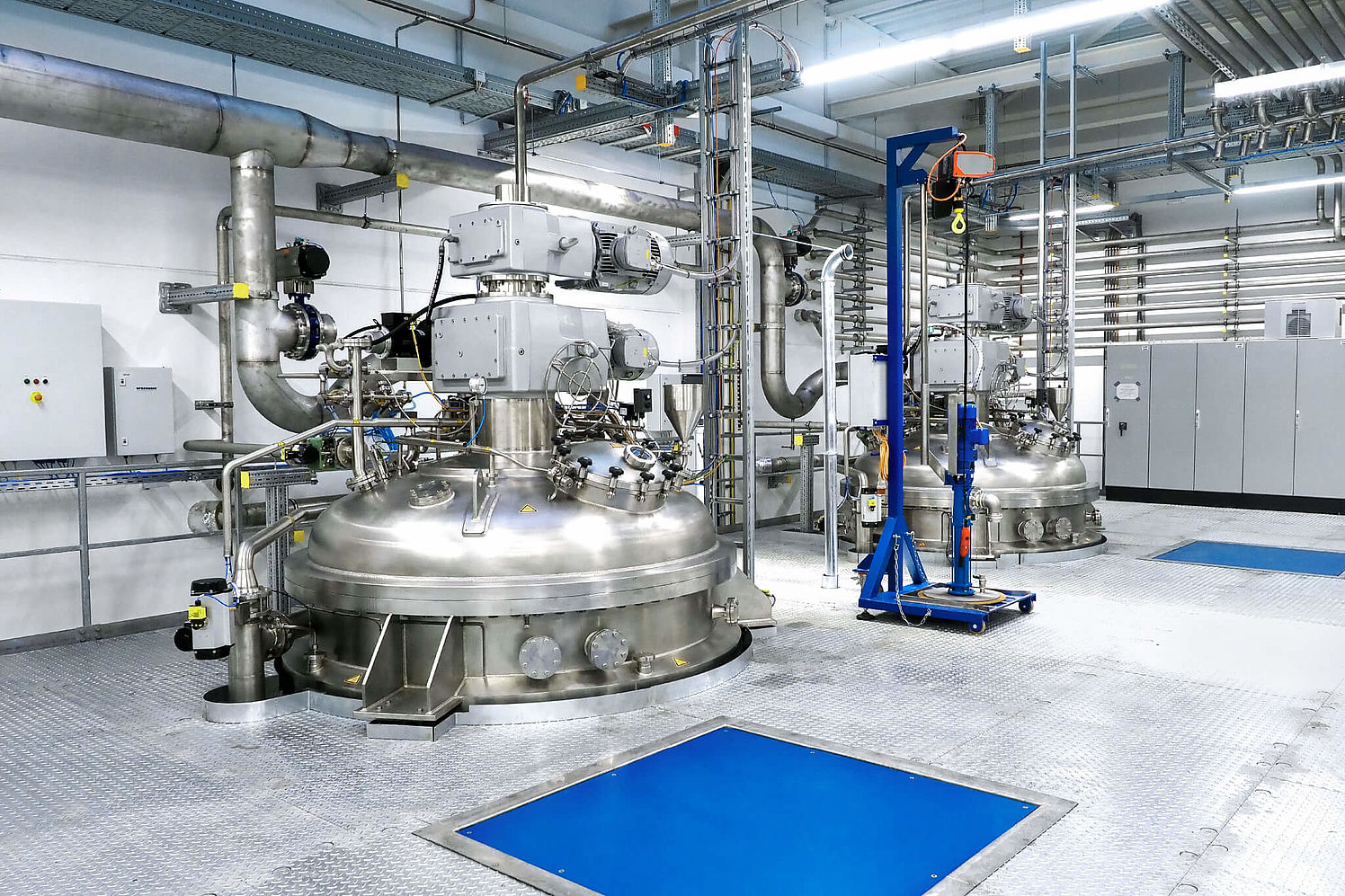
The new plant in Kaiserslautern is 2,000 square meters and fully automated.
You can find further information on the opening ceremony and the new facility here.
GREASES: AVAILABLE WHERE YOU NEED THEM
Just like the Kaiserslautern plant itself, the greases it produces are also rather special. Christopher Liebig, Head of Global Product Management Greases at FUCHS, is well aware of the benefits these products offer. Their properties make them the perfect lubricant solution for many applications. "A grease is essentially made up of a base oil, a thickener, and additives. You could actually compare it with a sponge. The oil and additives are held together by the thickener." The lubricating oil is then released from this sponge at a speed that is dependent on the temperature, time, and stresses encountered in the respective application. Christopher Liebig goes on to add that "the thickener is also what gives the lubricant its special properties. It transforms the oil into a semifluid, pasty product, which is highly beneficial for certain applications."
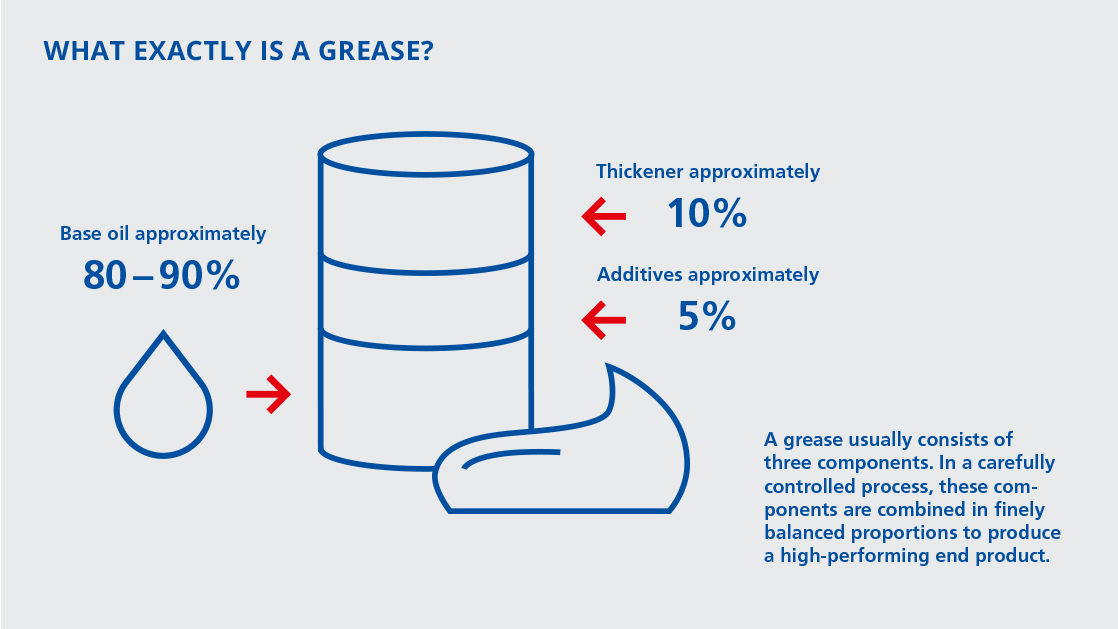
This is also the reason behind one of the key benefits of greases: the fact that they do not flow away from their application point. This also makes them the ideal choice for anyone looking to protect a friction point for as long as possible without having to reapply lubricant. This is, for example, the case with wheel bearings or drive shafts that are lubricated just once during manufacture, a process which is often referred to as lifetime lubrication. Thanks to their special properties, greases are also used for many applications in automobiles. "There are a lot of moving parts that must handle high torques here. An oil would simply run off due to the centrifugal force encountered," explains the Head of Global Business Segments Automotive Components & Interior Component Manufacturer, Dr. Matthias Ostertag. The specialties produced by FUCHS also offer customers numerous benefits in vehicle interiors. Sunroofs are a good example of this: "If the lubricant were to drip down here due to the power of the sun's rays, this would be a disaster."

“The automotive industry, for example, is increasingly demanding special greases due to the requirements of e-mobility. PU greases are ideally suited to this.”
DR. MATTHIAS OSTERTAG, HEAD OF GLOBAL BUSINESS SEGMENTS OEM AUTOMOTIVE COMPONENTS & INTERIOR COMPONENTS MANUFACTURER, FUCHS SE
PU GREASES: SOUGHT-AFTER SPECIALISTS
However, the new grease plant in Kaiserslautern focuses on production of a special product: polyurea grease. So why specifically PU grease? One reason is versatility: "The main advantage of PU greases is that we can adjust their properties flexibly to meet individual customer requirements through selection of the raw material used in the thickener". Yet it was another reason that motivated the company to construct the new factory, as Christopher Liebig explains: "The investment in the PU grease plant in Kaiserslautern represents another step in our strategy of catering to the market in a very targeted way." After all, the lubricating grease market is undergoing change, with higher-performance products being used instead of standard greases in various sectors.

“The investment in the PU grease plant in Kaiserslautern represents another step in our strategy of catering to the market in a very targeted way.”
CHRISTOPHER LIEBIG, HEAD OF GLOBAL PRODUCT MANAGEMENT GREASES, FUCHS SE
The thickeners used in standard greases are often based on soaps, typically alkaline and alkaline earth metal soaps such as lithium and calcium. However, PU greases are based on so-called organic non-soap thickeners. These excel through their high temperature and oxidation resistance - properties that are increasingly in demand in the wind power sector, the food industry, as well as in vehicle drivetrains. PU greases are also already an important component in e-mobility and are set to become even more important here in future. Thanks to their properties, they are suitable for a large range of applications and meet the strict requirements in terms of temperatures, speeds, and noise reduction.
"PU products in this scope were previously the missing link in our product portfolio," explains Liebig. Supplementing and extending the range of greases offered by FUCHS was therefore one of the main reasons behind the investment in the new plant.
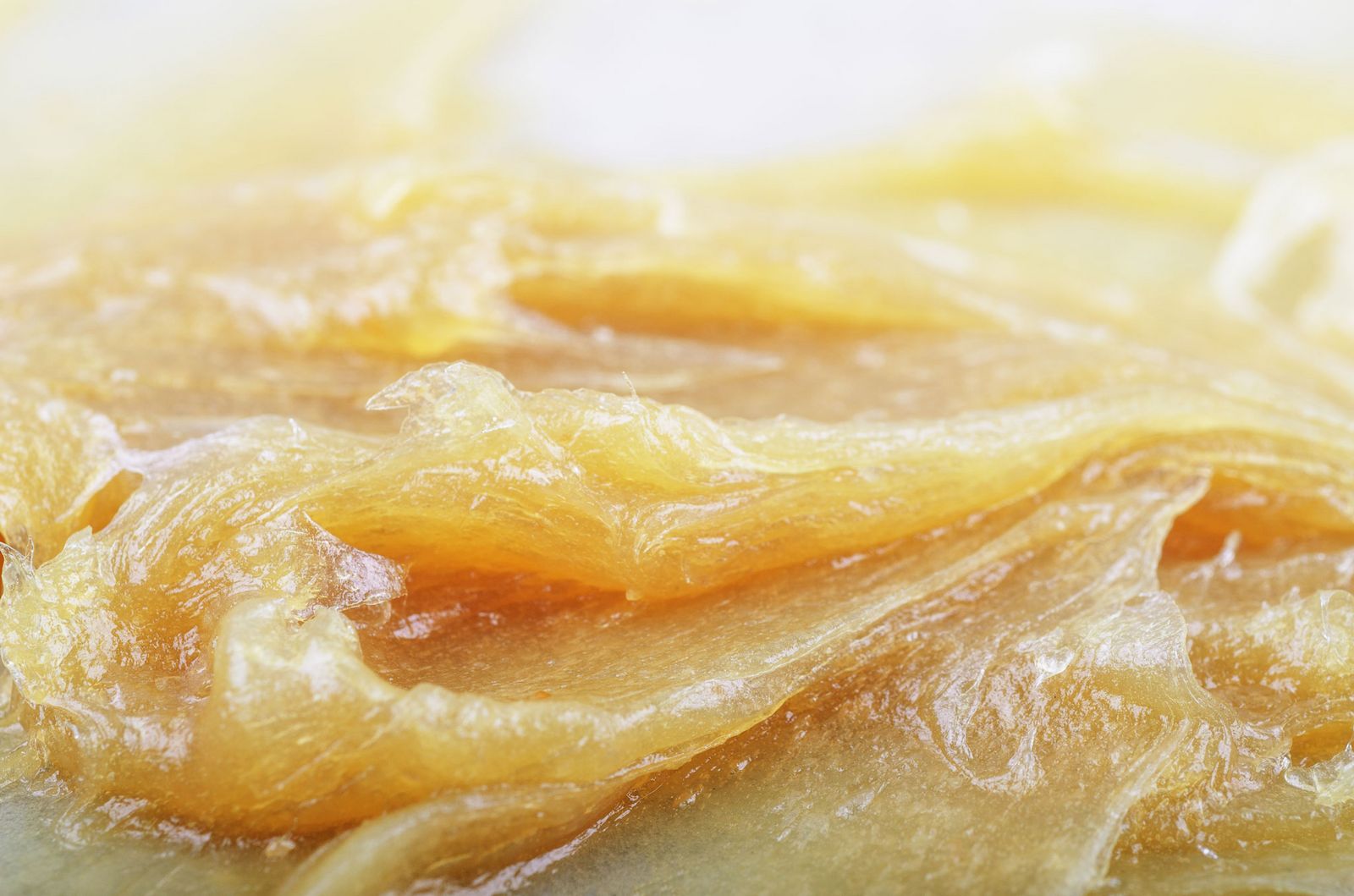
E-MOBILITY AND THE CHANGE IN ENERGY POLICY ARE SHAKING UP THE MARKET
Although the lubricant market is remaining stable overall, meaning that a comparable volume is still required, the greases themselves are different. The PU greases produced in Kaiserslautern are a good example of this.
"The requirements of greases have changed," explains Dr. Matthias Ostertag. "The trend in this regard can be attributed to certain applications. The automotive industry, for example, is increasingly demanding special greases due to the requirements of e-mobility." Lubricants with improved temperature resistance are therefore needed for drivetrains in electric vehicles, as these are also subject to higher temperatures due to the higher speeds of electric motors. In addition, noise is more readily perceived as disturbing by passengers in the interior of e-cars, as electric motors are quieter than their internal combustion counterparts. A noise-reducing lubrication is required here. "PU greases are ideally suited to both of these application areas," explains Dr. Matthias Ostertag. "They are based on organic non-soap thickeners and are heat-resistant, have a high dropping point, as well as excellent noise reducing properties."
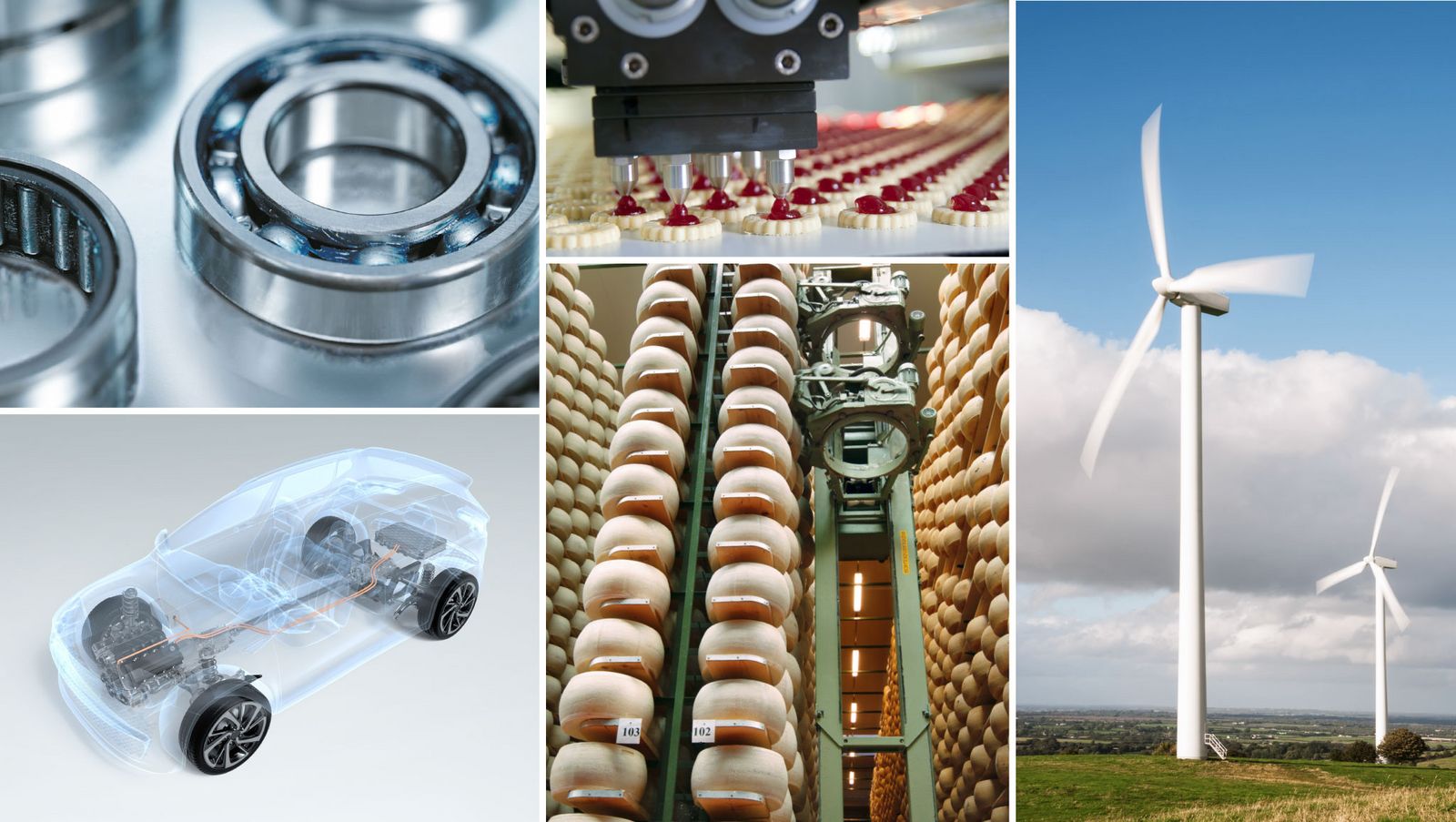
WELL PREPARED TO HANDLE DEVELOPMENTS IN THE MARKET
With the newly constructed plant, which boasts a floor area of 2,000 m2, the Group is now capable of catering to these requirements. Not only is the new facility state-of-the-art, it was also designed to be scalable from the start. As such, there is space to extend both in the tank storage area and the production hall. Indeed, a further 40,000 m2 of space at the Kaiserslautern location can be used for expansion of production operations. These are the best prerequisites for catering specifically to the increasing need for highly efficient greases.
FUCHS LUBRITECH, KAISERSLAUTERN
